North Korean leader's visit will bring many benefits to Russia
(Baonghean.vn) - Some people have high hopes for North Korean leader Kim Jong-un's visit to Russia. Others, including Russia's opponents, have serious concerns. What benefits can Moscow and Pyongyang offer each other?
Leader Kim Jong-un arrived at Khasan station in Primorsky region (Russia) on the morning of September 12, and may be on his way to the Russian port city of Vladivostok - where President Vladimir Putin is attending the Eastern Economic Forum.
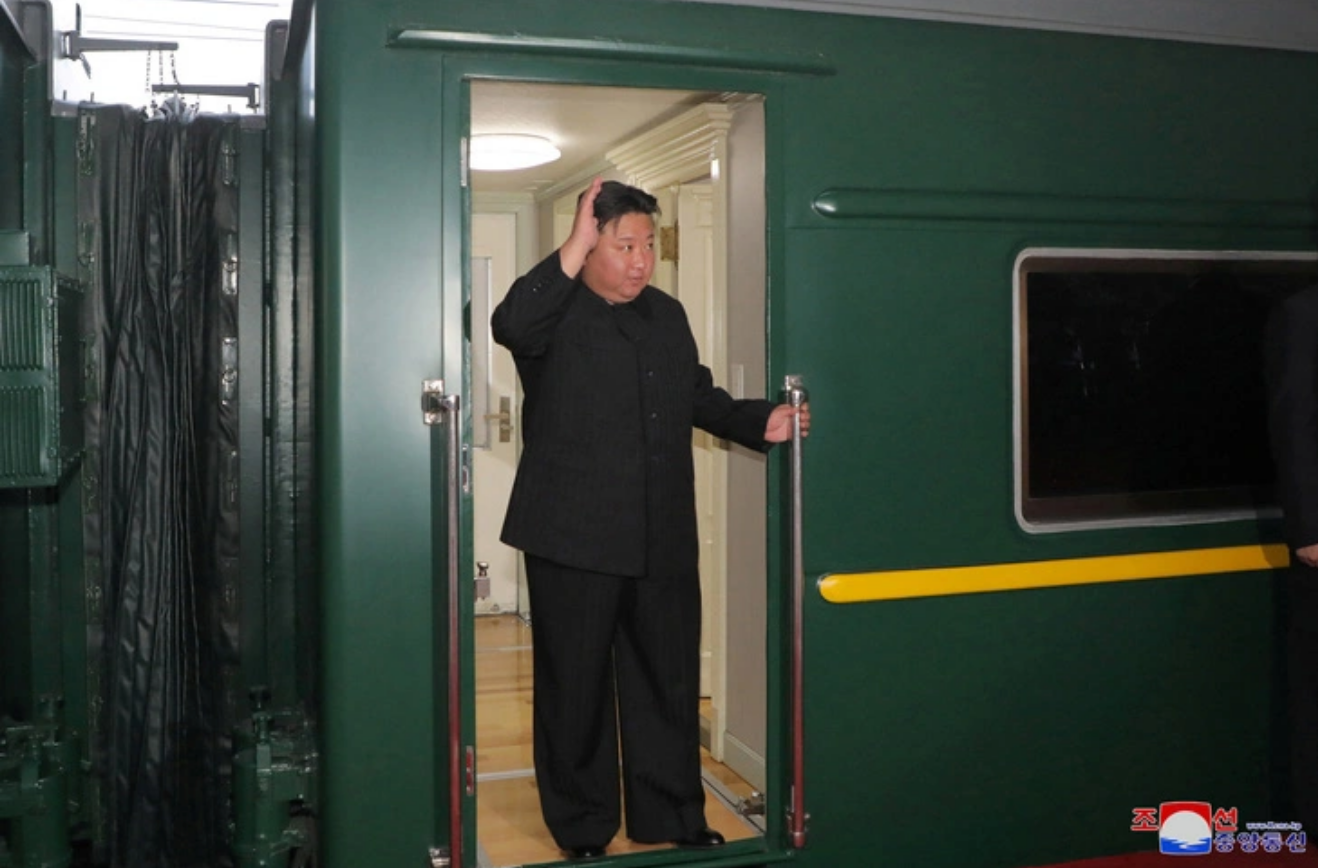
The US and its allies announced sanctions
Many experts are inclined to believe that the central topic of the negotiations is the contribution of North Korea to the conflict between Russia and Ukraine. It can be very diverse. One of them is that North Korea produces multiple launch rocket systems, and operational-tactical missile systems similar to those of the Soviet Union. In addition, North Korea's arsenal is stockpiling large quantities of 100-152mm caliber ammunition - ammunition that is becoming in great demand at the front.
Many opinions do not even exclude the topic of the North Korean army sending volunteers to the front in Ukraine. In fact, the North Korean army is considered one of the strongest forces in the region, but they have not fought in over 70 years. What is especially important for North Korea is that its army is part of the Soviet-Russian army. So, if they really send volunteers to fight, they will easily get used to the weapons and have a high chance of success.
Of course, the United States is the first country to express its displeasure with such prospects. It has repeatedly accused North Korea of supplying weapons to Russia. US Vice President Kamala Harris called the North Korean arms deal an “act of desperation” by Moscow, warning of “even greater isolation for Russia and North Korea.”
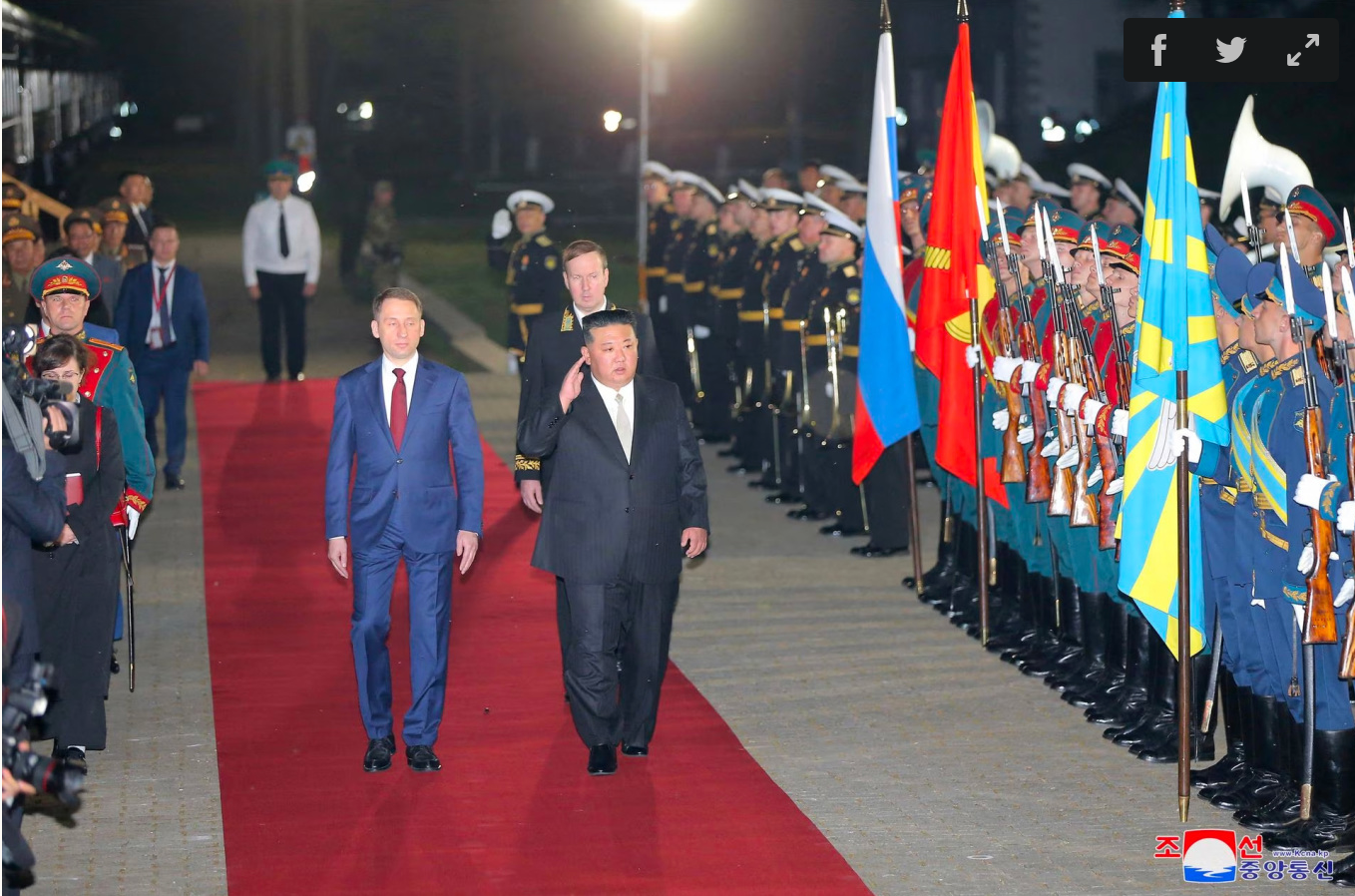
Last fall, the New York Times, citing US intelligence data, said Russia may have purchased millions of artillery shells and rockets from North Korea. US National Security Council spokesman John Kirby said that in exchange for ammunition, Russia would likely send food to Pyongyang. A possible deal between Russia and North Korea is believed to have been brokered by Slovakian arms dealer Asho Mkrtychev, leading to him being sanctioned by the US government. Last December, Washington accused Pyongyang of supplying combat missiles and rockets to the Wagner group.
Both Moscow and Pyongyang have consistently denied such “purchase” and “aid” allegations. North Korea does not supply weapons to Russia, and has no reason to supply them to Ukraine. Russia does not buy weapons from North Korea. As Russian Ambassador to Pyongyang Alexander Matsegora stressed, North Korea is actually in a state of war preparation and it is North Korea that needs the weapons it has accumulated.
Kim En Un, a leading researcher at the Center for Korean Studies at the Russian Academy of Sciences, said that the controversial efforts to improve relations between Russia and North Korea further encouraged Moscow and Pyongyang to maintain a “honeymoon” atmosphere.
The first,Western media have no information on the exact date when the alleged North Korean weapons were deployed in Ukraine. It should be noted that the UN Security Council has imposed sanctions on North Korea, and has expanded them several times, following Pyongyang's nuclear tests in 2009, 2013, 2016, 2017 and 2018. Specifically, about 50% of North Korea's exports are covered by UN sanctions. In addition, many countries have imposed their own sanctions.
Monday,Before sanctions were imposed, North Korea sold ammunition to countries in Africa and the Middle East. But since North Korea began conducting its first nuclear tests 14 years ago, the United Nations has also passed sanctions resolutions, including provisions for searching North Korean shipping vessels in foreign ports and international waters. Russia, a permanent member of the UN Security Council, has voted for these resolutions and strictly complied with them. So, accusations that Moscow is buying weapons from North Korea are baseless.
Furthermore, since 2020, due to the impact of the Covid-19 pandemic, the North Korean border has been in a state of “closed doors”, all trade and diplomatic activities are completely frozen. Nothing leaves the country. At the same time, no ships can enter there.
Alexander Perendzhiev, Associate Professor of Political Analysis and Social Psychological Processes at the Russian Economic University, member of the expert council of the Russian Officers, believes that the moves of the US and its allies are a sign of concern in the West about the resumption of relations between Russia and North Korea in the military sphere. A real military alliance to counter the West is emerging. Originally, the West was afraid of an alliance between Russia and China, but now a very real “strategic triangle” alliance of nuclear powers has begun to appear.
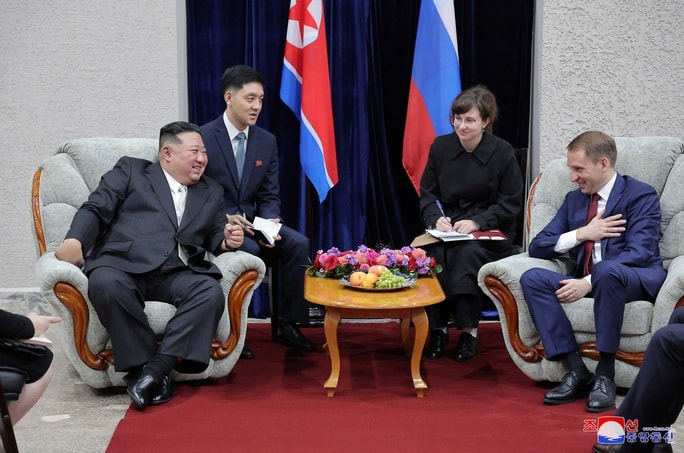
Why did Russia "shake hands" with North Korea?
The close, close ties that have been established between Russia and North Korea have been shaped by profound historical processes. Russia has been an important diplomatic and economic partner of North Korea since the end of World War II. Moscow stood by Pyongyang in the early days of the Korean War, providing military support, tanks, aircraft and strategic advisers. During the Cold War, Russia was Pyongyang's most important main ally, accounting for half of North Korea's foreign trade.
Both suffering from sanctions from the West, Russia and North Korea found common ground. According to a statement from the Russian Ministry of Defense before Sergei Shoigu's trip to Pyongyang in late July 2023, it affirmed: "North Korea is an important partner, sharing a common border and a rich tradition of cooperation." On the North Korean side, Pyongyang began to introduce new concepts such as "tactical and strategic cooperation" to talk about its relationship with Moscow.
In other words, Russia and North Korea seem to be forming a “situation alliance” that benefits both sides, as both are cornered by the United States and the Western collective. According to Professor Artyom Lykin on 38 North: Russia’s special military operation in Ukraine has opened up a new geopolitical reality. Accordingly, the Kremlin and Pyongyang are becoming closer, perhaps even reaching the level of a quasi-ally that existed during the Cold War.
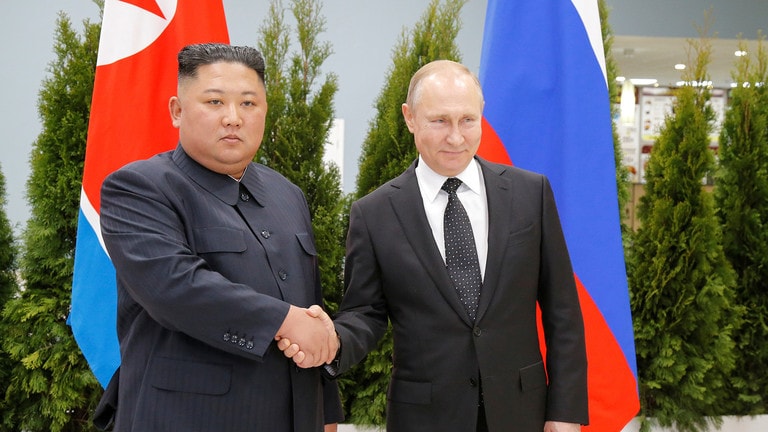
For both Russia and North Korea - countries that have been subject to severe sanctions from the US and the West, the warnings of sanctions coming after Kim Jong-un's visit to Russia are not surprising. However, practice in recent times has proven that despite imposing more than 17,000 sanctions on Russia, the West has not achieved its goals, but the measures have been exhausted.
Some Russian experts believe that Washington can respond to Pyongyang not directly, but indirectly. For example, by increasing the level of military-technical cooperation with South Korea, including in the field of nuclear technology, thereby forcing North Korea to respond to the new challenge by creating fundamentally new weapons systems that Pyongyang does not have. At the same time, the level of US-South Korean military cooperation will increase.
At the same time, North Korea’s two other rivals, South Korea and Japan, are systematically anti-Russian. In the coming time, harsh sanctions may be imposed on Russia.
For its part, Pyongyang can expect from Moscow not only military-technical cooperation, but also economic and political cooperation. Economic cooperation is mainly food supplies, as well as cooperation in mining and other industrial sectors.
Kim En Un, a leading researcher at the Center for Korean Studies at the Russian Academy of Sciences, said: "Russia is proposing measures to train personnel for North Korea. For example, the Far East has large reserves of limestone - a raw material for cement production, but Russia is not capable of doing this. Therefore, Russia is calculating that it can build a factory in North Korea. That would benefit everyone. Researchers also estimate that North Korea is rich in rare earth metal resources worth $2,000 billion. Meanwhile, Russia does not have enough supply. Why not develop production right now under such favorable conditions?"
Of course, Pyongyang could get all of this from Beijing, but the North Korean leadership is wary of over-reliance on China and wants to diversify its foreign relations. And Russia is the only candidate, because Moscow and Pyongyang are linked by a long history of mutual trust.
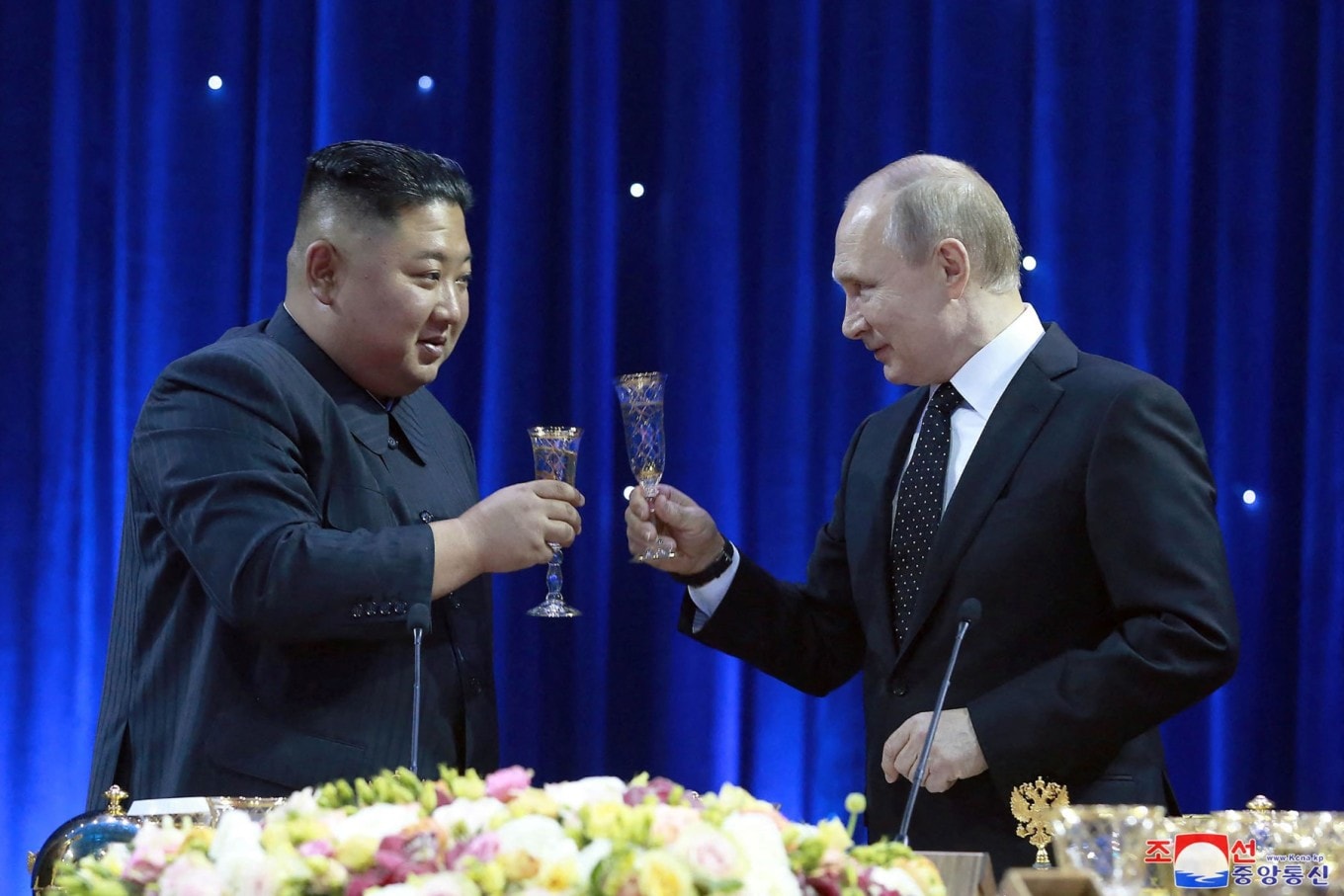
In 2019, North Korean leader Kim Jong-un held his first summit with Russian President Vladimir Putin in Vladivostok, Russia. That same year, in a birthday message to the Russian leader, Kim Jong-un praised Putin for “crushing the challenges and threats of the United States” and pledged to “hold hands” and strengthen strategic cooperation with Moscow. In addition to a promise to “strengthen defense cooperation,” Russia and North Korea resumed trade activities that had been delayed due to the pandemic.
North Korea's state news agency (KCNA) said on September 13 that leader Kim Jong-un's visit aimed to bring the North Korea-Russia friendship and cooperation to a "new height".
In short, North Korea opposes Western imperialism, while Russia calls for a multipolar world order and opposes collectivism. Ultimately, both Russia and North Korea have a common goal of opposing the West. So it is not surprising that Russia does not reject any friendship. Russia’s need for “friends” also benefits the world’s most closed country./.

